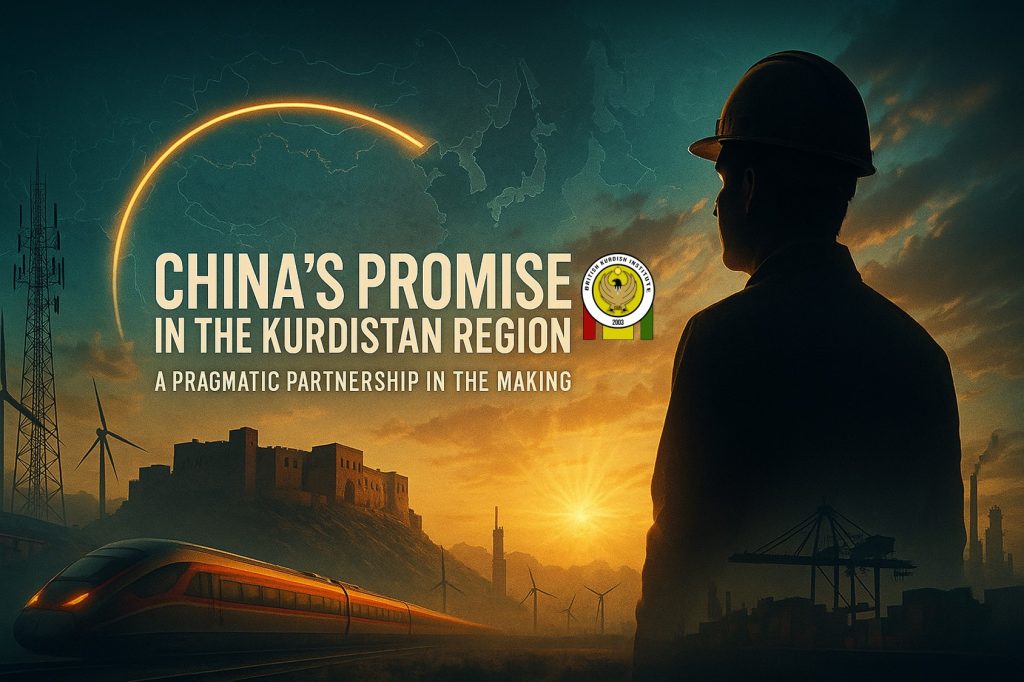A Growing Chinese Footprint in the Kurdistan Region
China’s economic presence in the Kurdistan Region is expanding at a steady and strategic pace. From new telecom towers to cement factories running day and night, and even classrooms offering Mandarin lessons, the signs of Chinese cooperation are increasingly visible. Behind this growth lies a calculated and pragmatic campaign—one that blends commercial outreach, cultural diplomacy, and carefully chosen infrastructure projects still awaiting full financing and implementation.
This approach reflects China’s broader economic pivot. Globally, Beijing has shifted from investment-driven expansion to a targeted focus on renewable energy, artificial intelligence (AI), and advanced manufacturing. Understanding this global strategy is crucial to grasping China’s ambitions in the Kurdistan Region.
Beijing’s Pragmatic Strategy
Unlike flashy diplomatic gestures, China favors long-term partnerships and sector-specific investments. Analysts note that this explains why Chinese firms in Erbil concentrate on sectors where fast, visible results are achievable, while more complex infrastructure projects progress more cautiously.
Zou Demin, Consul for Economic and Trade Affairs of the People’s Republic of China in Erbil, described the Region as “an important gateway for regional trade and a promising hub for economic cooperation.” He emphasized that opportunities extend beyond oil and gas, reaching into agriculture, infrastructure, and technology—sectors where Beijing’s pragmatic style aligns with local needs and capacities.
Expanding Trade and Commercial Links
Local business leaders echo this vision but highlight on-the-ground challenges and opportunities.
According to Kamil Ahmed Hama Rash, advisor at the International Chamber of Commerce in China, Iraq’s trade with China reached $40 billion in 2023–2024, while Chinese customs data places total trade at $54.2 billion in 2024. The Kurdistan Region accounts for roughly $5 billion annually, facilitated by about 250 trading firms.
Most of this commerce flows through ports in Umm Qasr, Bandar Abbas, and Mersin, before being re-exported to neighboring markets—evidence of the Region’s growing potential as a logistics and trade hub.
To unlock this potential, Hama Rash stressed the importance of creating a dry port in the Kurdistan Region. Such a move could streamline operations, cut costs, and strengthen the Region’s role in international supply chains.
Challenges on the Ground
Despite strong trade figures, structural challenges persist. Many traders avoid commercial loans due to interest rates conflicting with Islamic financing principles. At the same time, the Kurdistan Regional Government (KRG) must improve transport infrastructure, customs systems, and legal frameworks to turn trade growth into broader industrial development.
Agreements Versus Action
Some partnerships have delivered concrete results. Huawei, for example, has advanced digital infrastructure through cooperation with local telecom providers. Chinese-built cement factories are fueling the Region’s post-conflict reconstruction boom.
Cultural engagement is also gaining traction. In 2024, hundreds of Kurdistan Region residents joined Chinese training programs sponsored by the China Scholarship Council, while Salahaddin University in Erbil continues to expand its Chinese Language Department.
Yet, many larger projects remain stalled. Signed agreements for hydropower plants and a major refinery face financing and supply chain delays. This gap between memoranda of understanding (MoUs) and on-the-ground delivery highlights a core concern: without job creation, technology transfer, and local workforce development, headline deals risk offering little beyond imported equipment.
Strategic Risks and Local Needs
Relying heavily on one external partner also raises questions about competition, local value retention, and long-term resilience. Experts argue that the KRG must secure binding commitments from Chinese firms, including local hiring, transparent procurement, and meaningful technology transfer.
Consul Zou insists cooperation will deepen: “Our cooperation should bring mutual benefit and shared growth.” But the real measure of success will be whether this cooperation creates sustainable jobs, apprenticeships, and financing models aligned with local economic preferences.
Building a Sustainable Partnership
To move forward, several policy priorities stand out:
-
Establishing a dry port to streamline trade and lower costs.
-
Embedding local content and workforce provisions in contracts to ensure long-term economic benefits.
-
Diversifying financing mechanisms to respect both commercial needs and Islamic finance principles.
On the Chinese side, firms must demonstrate that investments directly improve living standards, job opportunities, and skills training for local communities.
Looking Ahead: Opportunity or Missed Potential?
For Erbil and the wider Kurdistan Region, Chinese engagement represents a door of opportunity—but one that remains only partially open. The future will depend on whether agreements move from paper to construction sites, whether trade translates into industrial capacity, and whether both sides can align their legal and financial frameworks for resilient development.









